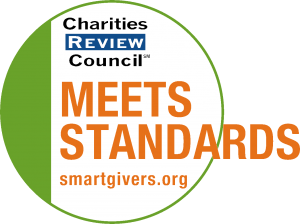Impact and Programs
Accomplishments
In 2022, Can Do Canines certified 51 high-quality
assistance dog teams. This included 8 Hearing Assist
Dog teams, 27 Mobility Assist Dog teams, 4 Seizure
Assist Dog teams, 1 Diabetes Assist Dog teams, 5
Autism Assist Dog teams, 1 Combination Skills Dog
teams and 4 Facility Dogs. We had 363 active
assistance dog teams throughout the year, and
worked with roughly 200 dogs and puppies in training
to be future assistance dogs. During Covid, we
worked hard to move our new assistance dog team
training to virtual platforms where possible. We
took measures to make our facility as secure and
clean as possible for dogs, trainers, staff, and new
clients who needed to be on-site.
Current Goals
Our goal for 2023 is 52 teams. With the staff we
currently have in place, this is an obtainable goal.
We had set a goal of having 13 litters in 2023. We
will not reach the goal of 13 litters with our current
resources and whelping volunteers. It has become
increasingly difficult to recruit volunteer whelpers,
so we have had to skip several breeding
opportunities this year. We have 48 new dogs to the
program so far in 2023, and our goal is 75. To boost
the number of dogs entering the program in 2023-
2024, we recently purchased a kennel facility in order to bring the critical whelping function in-
house. Having Can Do Canines staff whelp litters,
rather than volunteers, will enable us to increase
our litters in the near future.
Community or Constituency Served
Can Do Canines trains the following five types of
assistance dogs to support our clients – Hearing
Assist, Mobility Assist, Diabetes Assist, Seizure
Assist, and Autism Assist Dogs. Prospective clients
who are deaf or hard of hearing, have mobility
issues, seizure disorders, type 1 diabetes with
hypoglycemic unawareness, and children with
autism may apply. We also started a Faciity Dog
pilot program in 2022. A facility dog is trained to
work at a designated location with a variety of
people. Typically this type of dog is placed in a
hospital or a rehab center. In brief, here is how each
type of assistance dog helps our clients: * Hearing
Assist Dogs alert a person who is deaf or hard-of-
hearing to sounds by making physical contact with
them and then leading them to the source of the
sound. This type of assistance dog is often selected
from animal shelters. * Mobility Assist Dogs work
with people who have mobility challenges and other
needs. They pick up and carry objects, pull
wheelchairs, open doors, and help to pay at tall
counters. * Diabetes Assist Dogs detect low blood
sugar levels by sensing a change in the small of
their partner’s breath. The dog alerts their partner
by touching them in a significant way. * Seizure
Assist Dogs respond to a person having a seizure by
licking their hands or face, retrieving an emergency
phone, and alerting other family members. Their
role is to help keep them safe (not to alert to an
oncoming seizure, although some are able to) and
the contact (licking) can bring them out of a seizure
more quickly. * Autism Assist Dogs keep children
with autism safe in public settings and help them
experience the world more fully by offering comfort
and assurance. These special dogs also serve as a
social bridge between the family and the public.
Geographic Area Served
All but Autism Assist Dogs are placed in Minnesota
and Wisconsin; Autism Assist Dogs are placed only
in Minnesota.
